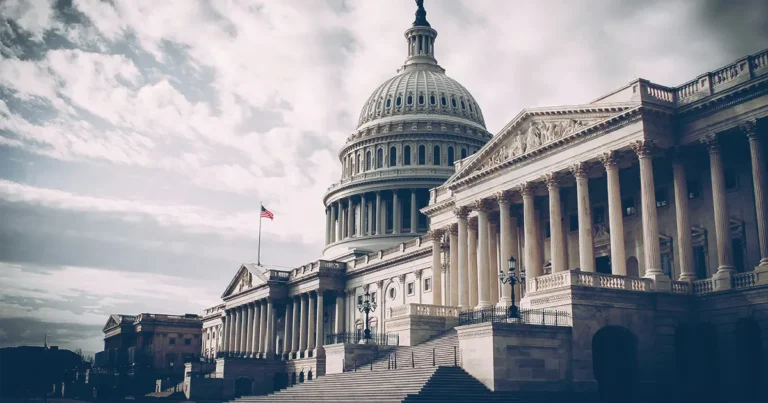20- 5-2025 – The U.S. Senate’s GENIUS Act, a pivotal piece of legislation aimed at regulating stablecoins, has defied expectations by gaining renewed momentum, clearing a crucial procedural vote on Monday evening with over 60 votes. This breakthrough sets the bill on a swift path towards a full floor vote, potentially as early as Tuesday. The Act’s passage through the Senate would mark a significant milestone, with the legislation then needing approval from the House before reaching President Trump’s desk for signing. If enacted, the GENIUS Act promises to establish a clear legal framework for issuing stablecoins in the U.S., enabling these dollar-pegged crypto tokens to facilitate seamless cross-border payments, remittances, and digital asset trading without direct reliance on fiat currencies.
The bill’s resurgence comes just days after it appeared doomed, having failed the same procedural cloture vote less than two weeks ago. At that time, a wave of discontent among pro-crypto Democrats—fuelled by concerns over President Trump’s perceived conflicts of interest in the crypto space—had threatened to derail the legislation. However, a revised draft of the GENIUS Act, finalised last week, appears to have turned the tide. Senate Democrats hailed the new version for securing significant concessions from Republicans, including measures addressing national security, conflicts of interest, and the role of Big Tech. Notable additions include a clause barring senior executive branch officials from launching their own stablecoins—though the president and vice president remain exempt, a loophole that fails to fully address the ethical concerns tied to Trump. Additionally, late amendments prohibit Big Tech firms that track and sell sensitive financial data from issuing stablecoins, unless they secure explicit user consent within their terms of service.
The bill’s revival was also propelled by intensified lobbying efforts from the cryptocurrency industry, which recognised that the failure of the GENIUS Act could jeopardise broader crypto legislation on Capitol Hill for the year. Coinbase, a heavyweight in Washington’s lobbying circles, shifted its stance in recent days after previously hesitating to back standalone stablecoin laws. The company’s CEO, Brian Armstrong, issued urgent calls for the bill’s immediate passage, while Stand With Crypto, a Coinbase-backed advocacy group, warned it would downgrade politicians’ ratings if they opposed the cloture vote—a step it notably avoided after the earlier failed vote. Over the weekend, Coinbase escalated its campaign, sending in-app notifications to American users, urging them to press their senators to support the GENIUS Act. This push reflects the immense financial stakes at play: last year, Coinbase and other major U.S. crypto firms raised over $300 million for pro-crypto super PACs, which heavily influenced congressional races, with millions more already amassed for the 2026 midterms.
The renewed support from key Democrats, including Ruben Gallego (D-AZ), Mark Warner (D-VA), Lisa Blunt Rochester (D-PA), Kirsten Gillibrand (D-NY), and Angela Alsobrooks (D-MD)—several of whom had initially co-sponsored the bill but voted against cloture earlier this month—proved instrumental in securing the necessary votes. With the Senate now poised for a final vote, the GENIUS Act’s passage could unlock significant opportunities for stablecoins, potentially drawing billions, if not trillions, of dollars from Wall Street giants into the crypto sector, fundamentally reshaping the global financial landscape. Yet, questions linger about the enforceability of the bill’s new provisions, leaving some to wonder whether the compromises made will deliver the robust oversight the industry so urgently needs.


